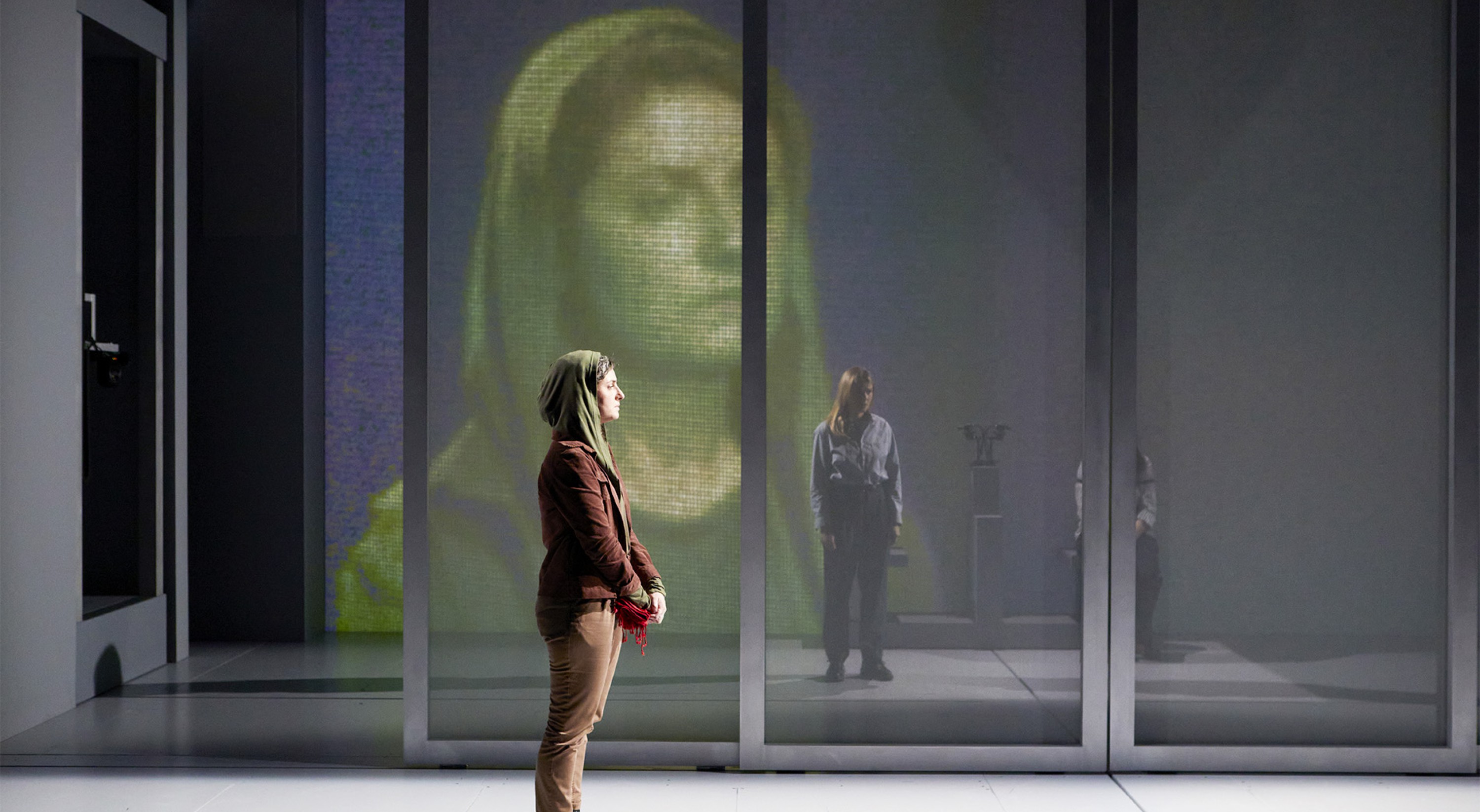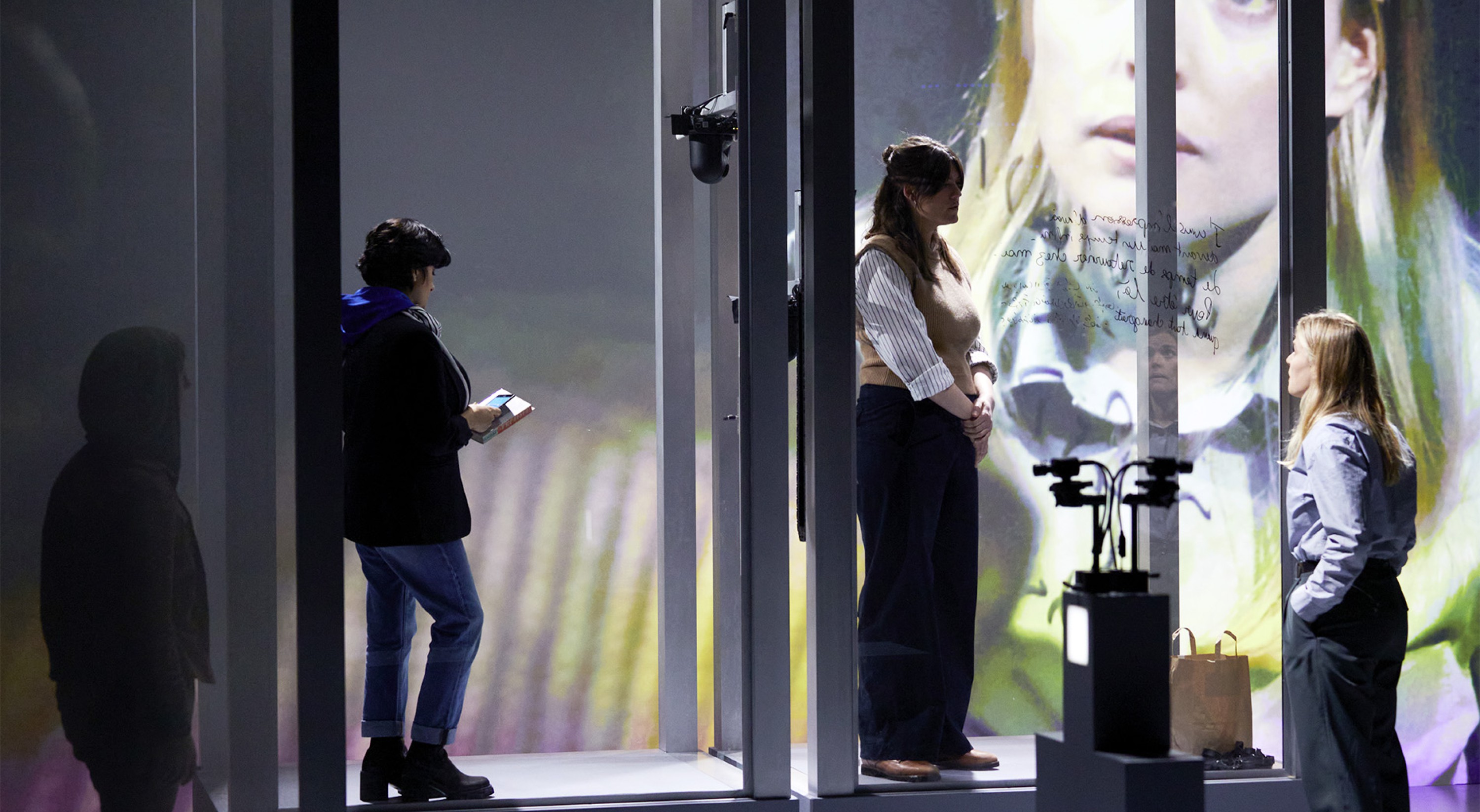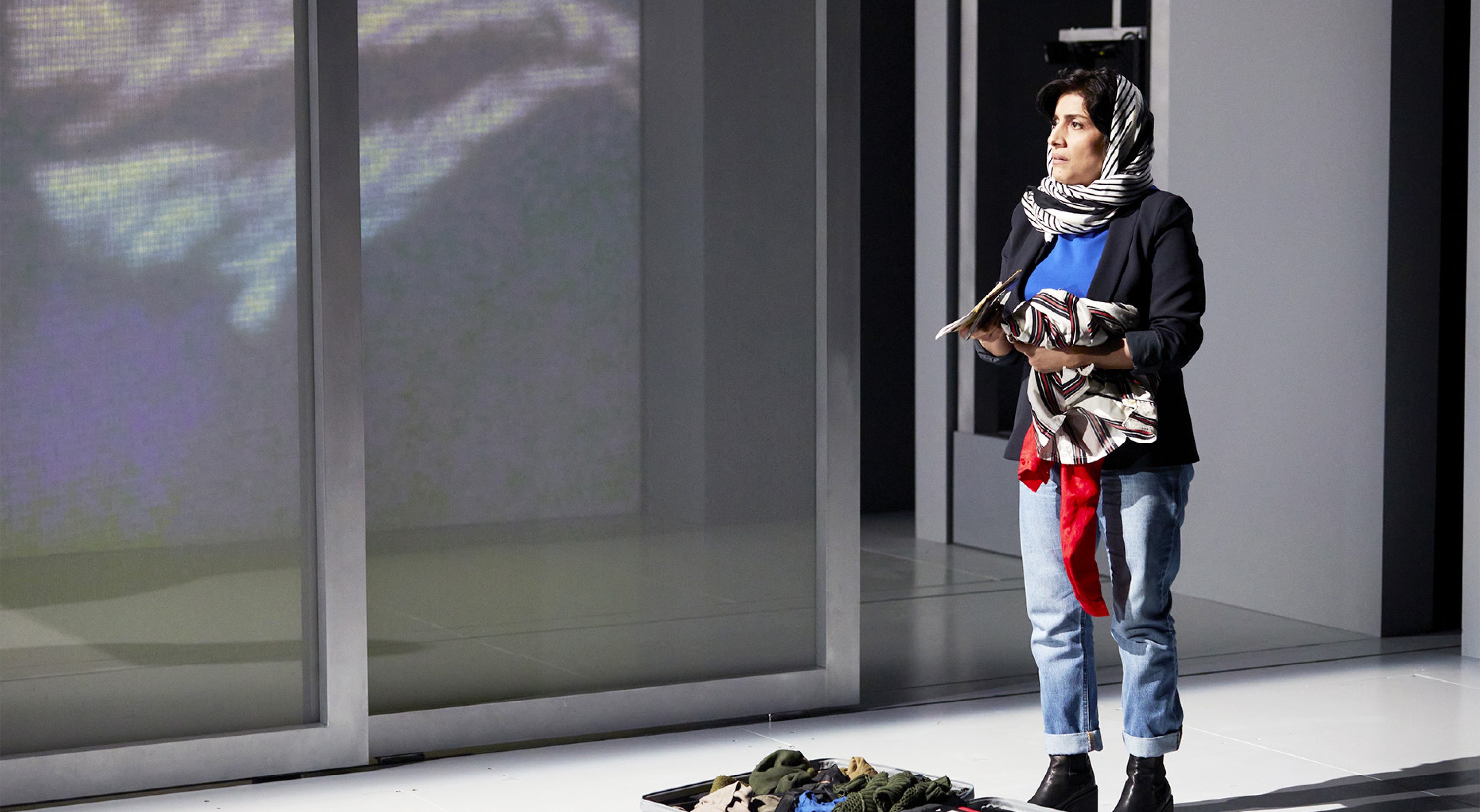Amir Reza Koohestani
En transit
novembernov 5 – 6
novembernov 8 - december – dec 8
Staging, Amir Reza Koohestani
Staging assistant, Isabela De Moraes Evangelista Inspired from Transit by Anna Seghers
Adapted by Amir Reza Koohestani, Massoumeh Lahidji, Keyvan Sarreshteh
Text, Amir Reza Koohestani, Keyvan Sarreshteh
Translated by Massoumeh Lahidji
Featuring Danae Dario, Agathe Lecomte, Khazar Masoumi, Mahin Sadri
Stage design and lights: Éric Soyer
Sound, Benjamin Vicq
Video, Phillip Hohenwarter
Costumes, Marie Artamonoff
Produced by Comédie de Genève
Co-produced by Odéon-Théâtre de l’Europe (Paris); Théâtre National de Bretagne (Rennes); Teatro Metastasio di Prato; Mehr Theatre Group (Hamburg) ; Festival d’Avignon; Maillon, Théâtre de Strasbourg – Scène européenne; Triennale Milano Teatro
Coréalisation Odéon-Théâtre de l’Europe (Paris); Festival d’Automne à Paris
Following on from Hearing and Summerless, two pieces which delighted audiences at the Festival d’Avignon, the Iranian director, Amir Reza Koohestani, brings to the stage the plight of exiles. He does so by confronting his own experiences in an airport with those recounted by the German author, Anna Seghers, in her novel Transit, published in 1944.
Born in Shiraz, in 1978, the Iranian director, Amir Reza Koohestani, has been an active participant in the renaissance of theatre in his country. His uncluttered, contemporary stagings explore the burning issues of today, such as the role of surveillance in society, immigration and frontiers… En transit, his latest piece, is inspired by a real-life event. In 2018, during a stop-over in Munich as part of his flight to Chile, he found himself suddenly being transferred, by the border control police, to the airport’s transit zone, known simply as the “waiting-room”. For what reason was he being detained? He had exceeded his stay, by a few days, in the Schengen zone, due to the issuing, for unexplained reasons, of two different visas. Within the confines of this waiting room, Amir Reza Koohestani discovered an anxiety-provoking no man’s land ruled over by a Kafkaesque bureaucracy. The experience took him back to his reading of Transit, a novel by Anna Seghers, published in 1944, and which he was due to adapt for the stage. Its echoes with the situation of other individuals present in the same waiting-room gave him the impetus to blend this story with that of the Jewish German authoress. In this piece, which revolves around the figure of Amir Reza Koohestani, the exiles of the past come into contact with the refugees of today. Audiences are treated to a work of great elegance which blurs the frontiers between the different temporalities, genres and references.
In the same place



